
Quite a bit late this year, but I’ve finally put together the 2023 conservation / ecology / sustainability journal ranks based on my (published) journal-ranking method (as I’ve done every year since 2008).
After 16 years of doing this exercise, I can’t help but notice that most journals don’t do much differently from year to year. They mostly tend to publish the same number of papers, get the same number of total publications, and therefore, remain approximately in the same rank relative to others.
Some things to note: Clarivate continues to modify its algorithm, meaning that most journal Impact Factors have gone down yet again. This is somewhat irrelevant from the perspective of relative ranking, but it might piss off a few journals.
I therefore present the new 2023 ranks for: (i) 111 ecology, conservation and multidisciplinary journals, (ii) 29 open-access (i.e., you have to pay) journals from the previous category, (iii) 68 ‘ecology’ journals, (iv) 33 ‘conservation’ journals, (v) 44 ‘sustainability’ journals (with general and energy-focussed journals included), and (vi) 21 ‘marine & freshwater’ journals.
Here are the results:
(i) ecology, conservation and multidisciplinary
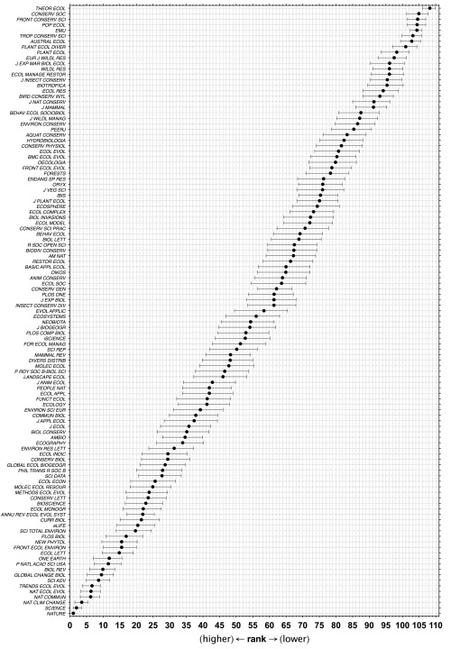
Here’s a more focussed list of the top-20 journals from above:
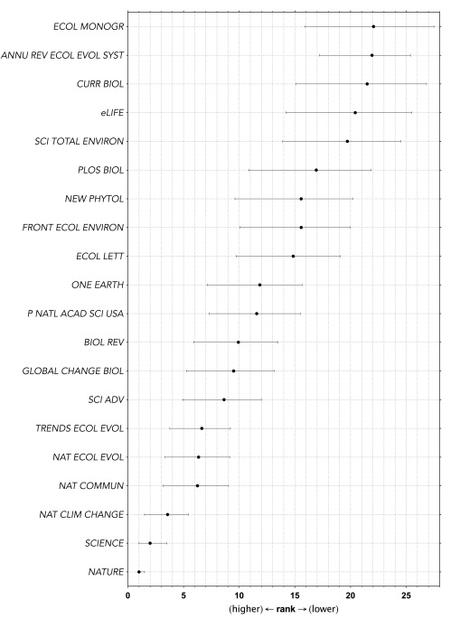
Not a lot of change from last year, but Global Change Biology has jumped forward a few positions.
From the full sample above, here is the ranking for the 28 journals that are open-access, if you fancy paying several thousands (if not tens of thousands) of dollars/euros/pounds for the privilege:
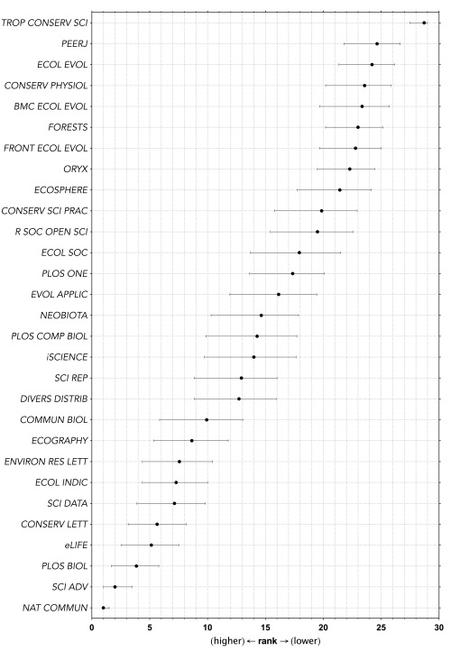
(ii) ecology journals
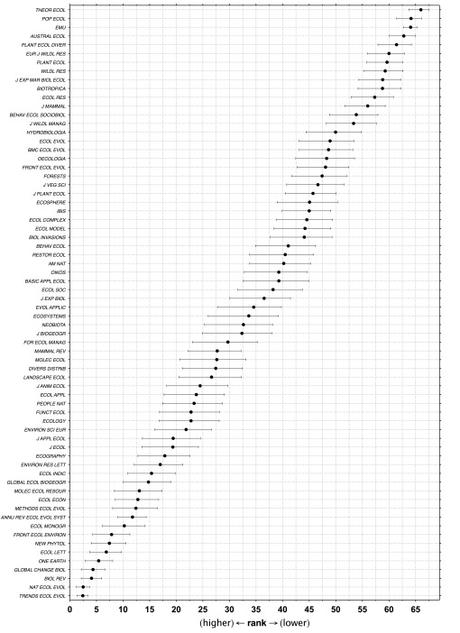
Not many changes for the ecology journals, but Trends in Ecology and Evolution has taken first place from Nature Ecology and Evolution. One Earth continues its upward trend.
Here’s a closer look at the top-20 from that last list:
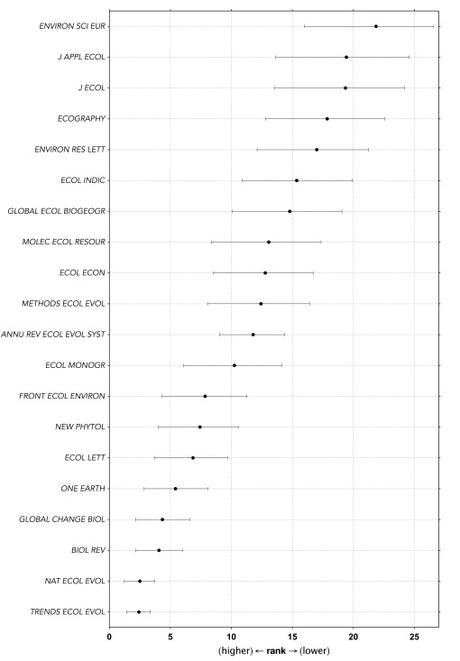
(iii) conservation journals
Here is the most relevant list for ConservationBytes.com readers:
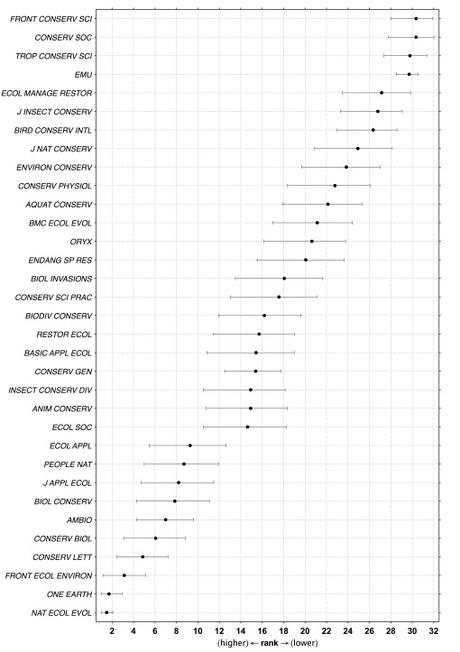
There are no really major changes here either. Frontiers in Conservation Science has finally made it into the list (albeit, in last place).
(iv) sustainability journals
In the ‘sustainability’ journals (including some general-category ones too), not much has changed since last year:
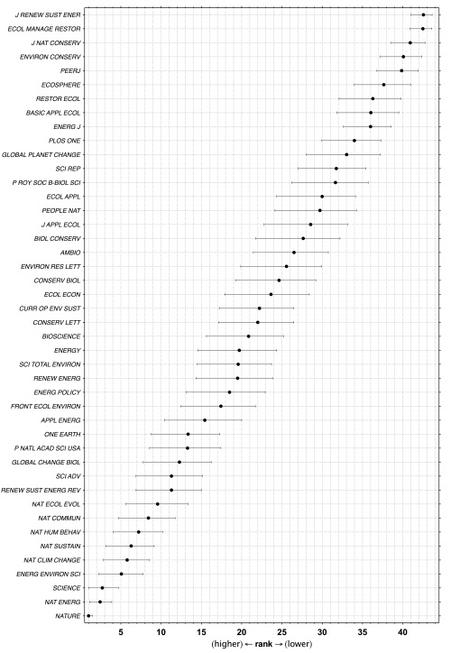
(v) marine and freshwater journals
Not much change here, except that Coral Reefs has moved up a few spots:
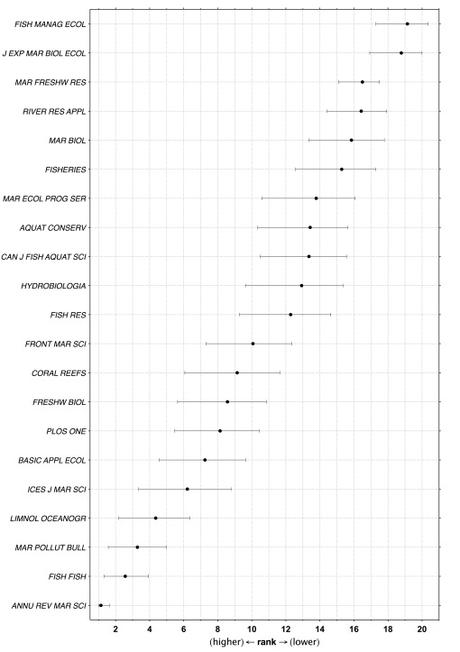
It’s all a bit boring and predictable, despite the continued downward trend in Impact Factors. And I remained disgusted by the gross exploitation of academic publishing companies.
See also the previous years’ rankings (2022, 2021, 2020, 2019, 2018, 2017, 2016, 2015, 2014, 2013, 2012, 2011, 2010, 2009, 2008).
CJA Bradshaw

